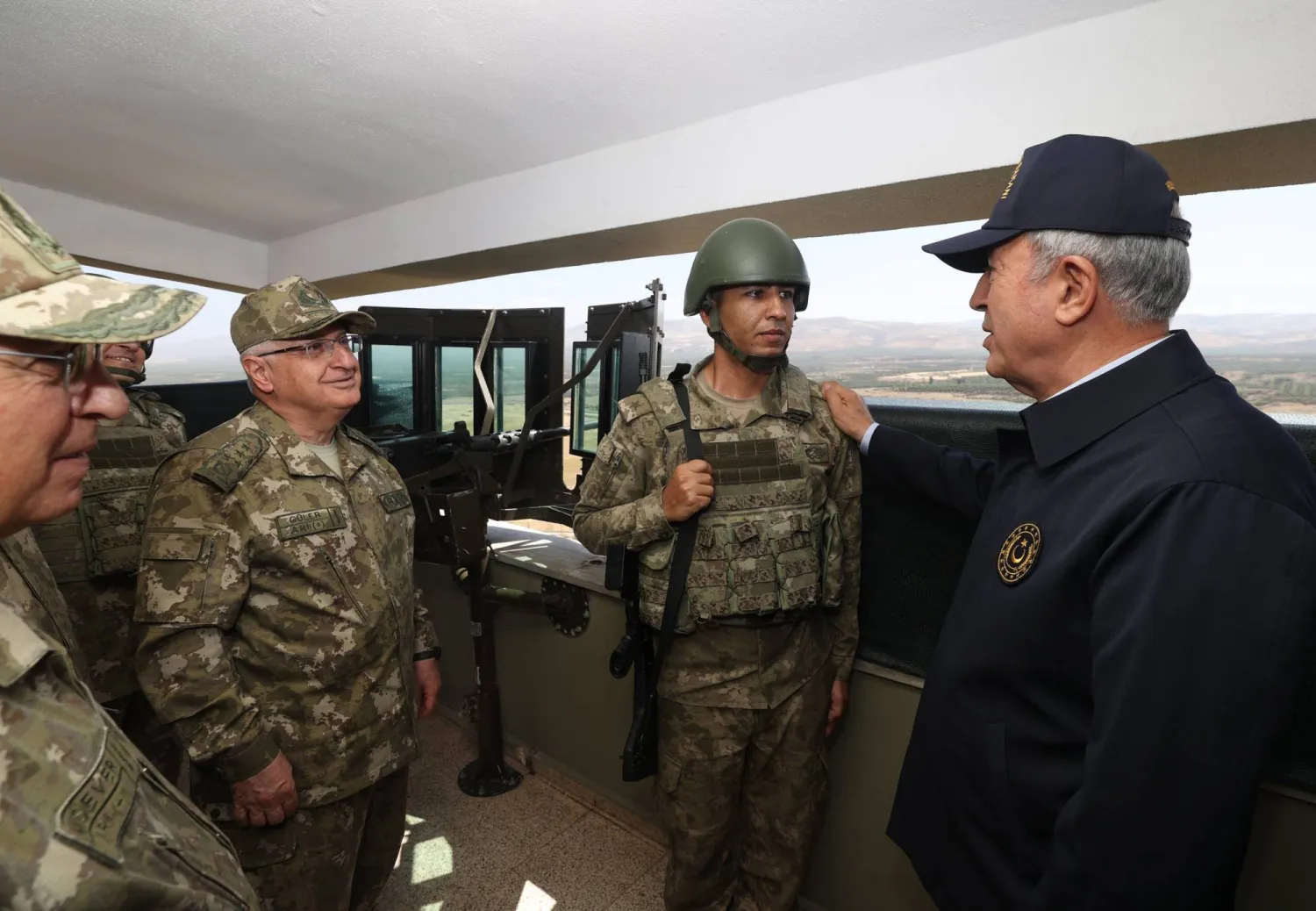Türkiye has once again ruled out the idea of withdrawing its forces from Syria at the present time, pointing to fears related to the presence of “terrorist organizations” on its borders. The country stressed that its military presence in the region was also useful for Syria to preserve its unity.
Turkish Defense Minister Hulusi Akar said that Türkiye had no ambitions in anyone’s lands, adding: “Our only concern is fighting terrorism... We are not invaders, and we have no eyes on anyone’s land.”
Akar, accompanied by the Chief of Staff of the Army, General Yasar Guler, and the commanders of the armed forces, inspected the border areas with Syria.
Addressing a group of Turkish journalists, he said: “The allegations about the presence of illegal crossings are untrue... Türkiye’s borders with Syria, Iraq and Iran are fully protected and under control.”
The minister emphasized that his country’s borders with Syria, Iraq and Iran are “fully protected” by a system that includes concrete walls and wire fences.
He continued: “We have surveillance radars, automatic weapons systems, and x-rays, in case terrorists try to penetrate the tunnels. We have 60,000 soldiers on the border. Our borders are secure and under control. No one should doubt that.”
Regarding Damascus’ call for the withdrawal of Turkish forces from northern Syria as a condition for normalizing relations, Akar said: “We said, let’s establish a joint center in Syria, let’s leave the soldiers there, follow the activities immediately and take the necessary precautions regarding developments.”
The Defense minister was referring to an agreement announced on the eve of the quartet meeting of the foreign ministers of Türkiye, Russia, Syria and Iran in Moscow, on May 10, within the framework of negotiations to normalize relations between Türkiye and Syria.
The agreement stipulated the establishment of a military coordination center in Syria with the participation of the four countries to coordinate efforts in the fight against terrorism.
For his part, Turkish Foreign Minister Mevlut Cavusoglu said: “If we leave these areas (northern Syria), they will be filled with terrorism, which means a new wave of migration.”
His remarks came during a television interview on Wednesday.
“Our presence benefits both Syria and Türkiye. We do not pose a threat to Syria. The threat lies in terrorism, which menaces the country’s unity...” He noted.









